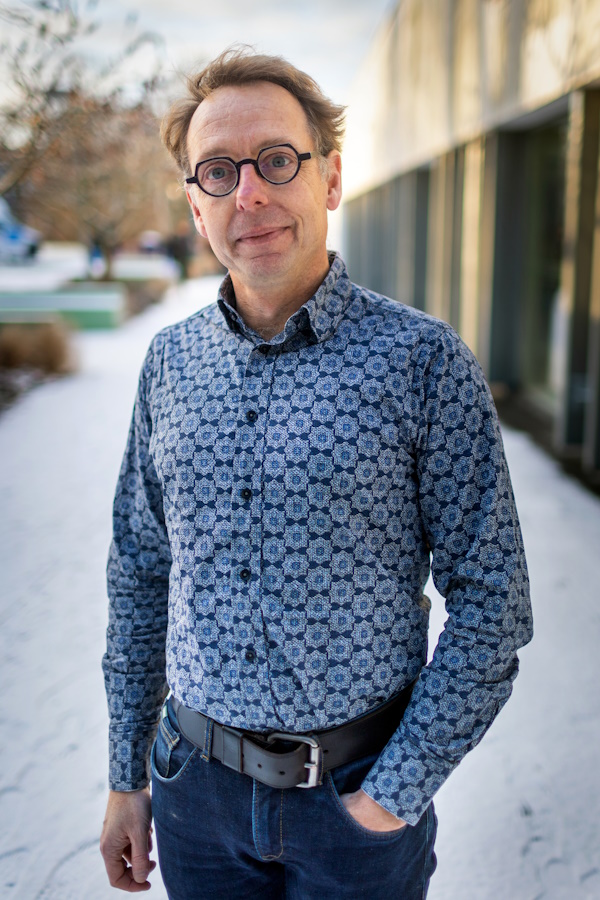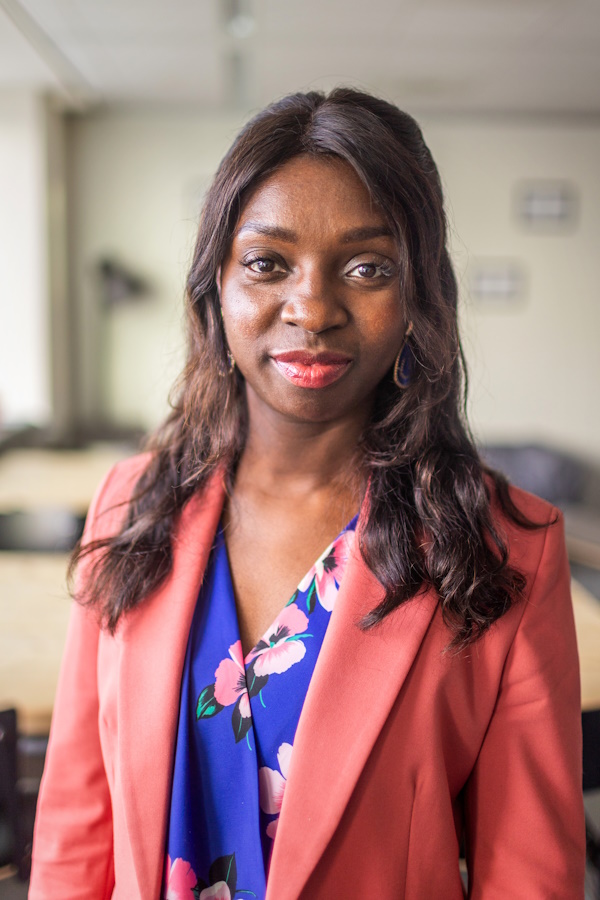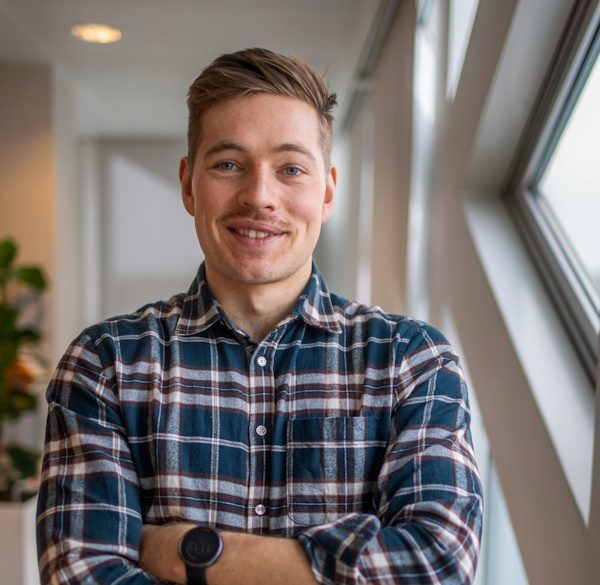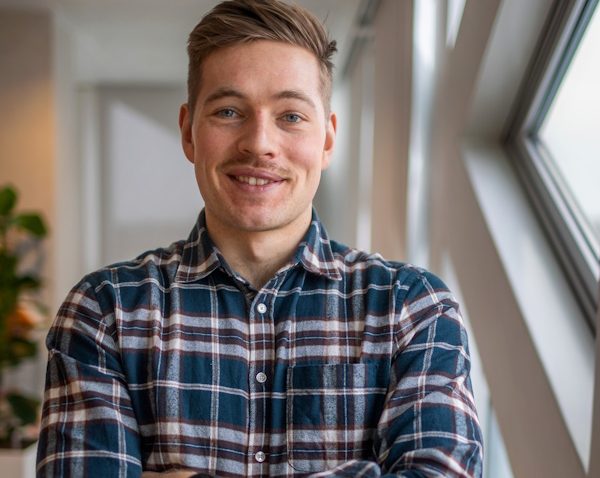International research shows that Dutch youth know less about democracy than peers in comparable countries, and they are also less and less interested in it. Teachers Urcy Wienen-Miranda, Shawn Noorlander and Menze Poortman teach the Dutch democratic constitutional state to students. What do they notice in the classroom?

Only a small proportion of students have a strong interest in politics, Menze Poortman has noticed for years in various study programmes. “Those students come to you after class and ask questions. But there is also a very large group that takes the Politics course ‘just because they have to’ and there’s also a group that really finds it horrible.” Since the rise of politicians such as Geert Wilders and Thierry Baudet, according to Poortman, students are more likely to personally identify with political viewpoints, which can sometimes cause tension in the classroom. “That occasionally makes it difficult to teach, because I sometimes have students from FvD (Forum for Democracy) and Groen Links (Green Left) in the classroom. You used to think, ‘Okay, they disagree.’ But it now goes much further, more personal. As if the other is inhuman. In the past you could disagree with each other and that was it. Now you can really be disqualified as a human being based on your political preferences.”
‘What you think about immigration, Europe or the LGBTQ+ community is suddenly very personal. I notice that some topics are approached very radically from all sides. Debates are more heated, and the heat does not subside afterwards: a tension remains in the air. Students tend to use the debate to express their own opinions, but do not listen to the opinions of others. I do worry about that.”

Government
Urcy Wienen-Miranda, Law teacher in Almere, sees that her Law students in general have a great interest and feeling for politics and our legal system. “Students start our course because they want to do something against injustice in the world. They want to provide good legal assistance to people who are having a hard time, or they want to become a criminal lawyer because they want to lock up criminals.” Urcy does notice that her students do not always feel that the government is there for them. “Certain topics, such as the Dutch childcare benefits scandal, are keeping people busy. Almere is a municipality with many residents who have been affected by the childcare benefits scandal, so it is logical that students personally feel something a certain way about it. They feel strongly that the government is a bit further away from them, that decisions are made that affect them personally and that do not always benefit them.”
Distrust

Shawn Noorlander, Politics teacher in the Journalism course, also recognizes these regional differences of opinion and distrust: “A large number of my students comes from small villages in the northern provinces. Villages that may have to deal with negative decisions from the House of Representatives, and therefore do not feel seen or heard. It’s certainly okay to be angry at the system. There are situations in which you as a citizen can seriously question the actions of the government, such as the childcare benefits scandal or the earthquakes in Groningen. These people have been brutally put away and need help because they have become victims of the government.”
Going into battle, competition, trying to persuade someone to a different point of view and dealing with disappointment: for Menze Poortman, this is all part of democracy. “And that is great, but decisions also have to be made. You want the majority’s position to count, but you also want the minority to be heard.” To counterbalance all that emotion, we have our constitutional state. You should also cherish that.”
Emotion
Teacher Urcy also emphasizes that emotion and decision-making cannot exist without each other: “There must be a balance. The moment the rule of law is pushed aside, there is no longer a basis. As a lawyer, you cannot approach a case solely from a human perspective, because you also need legal certainty. Citizens need to know where they stand. You must be able to assume that equal treatment takes place in equal cases. However, that does not alter the fact that the purpose of the legislation must always be taken into account. The great thing about the way in which legislation is drawn up is the parliamentary history that underlies it, that there are parliamentary reports in which such a law has been discussed. Concepts, provisions and definitions are always based on text. It is never just the Article itself. From a rule of law perspective, you also see what the reasoning is, what the background is and you should also do that in the implementation. You should never enforce a law like a robot. The idea of the rule of law is just as important.”
As an example, Urcy once again emphasizes the childcare benefits scandal, ‘a matter in which the government has ‘really failed’. “At a time when machines and algorithms form such a part of your decision tree, the way in which a government comes to decisions that intervene in the lives of citizens in such a way, as a government you have to ask yourself very much whether you are still on the right path. Then I come to the basic principles that we teach our first-year students: laws are ultimately letters and that letter of the law comes from what we see in society. But then you must always test a law against circumstances and facts in a case. That involves a story, and as a lawyer you can never say: “I’m just going through a protocol and I’m just ticking the boxes. You are an ethical person and you must always take that into account. That went completely wrong with the childcare benefits scandal. The people were no longer being seen and only the letter was looked at; That’s not what laws are meant for!”
Social media
All three teachers are concerned about the influence of social media on students. “You now see that personal dissatisfaction is being magnified without nuance and context on very specialist media channels,” explains Shawn Noorlander. “Social media is our new compartmentalization: the channels you follow determine your image of the world. There are politicians like Thierry Baudet who represent themselves really well on social media. He makes short videos without any context or nuance, but where he tells what he does and what he finds important. And no, those videos are sometimes not constitutional. But when you see Baudet with his vegetable box cooking up a meal, many people think ‘oh, he’s not such a bad man at all.’ And then it becomes difficult because you don’t get a realistic picture of what is really happening. Also influencers, such as Joël Beukers, who sit in the gym all day and tell followers that they are stupid and lazy and make videos about that. People who are not politically committed at all, but who proclaim to their followers that you should not take school and the government seriously, but should take responsibility yourself through hard work, and everyone can become a millionaire. This naturally appeals to a lot of boys in particular.”
Menze Poortman also believes that we should pay much more attention to the effects of social media. “Because at a certain point they undermine democracy and the rule of law. But I also think that we should pay much more attention to citizenship, also here at Windesheim. It’s not just about knowledge about politics. It’s about thinking about the complexity of that difficult system of democracy and the rule of law. And you must also say honestly and clearly that democracy brings disappointment. There are a number of values that we must cherish, such as the principle of equality. Radical parties do not cherish those principles and that could lead to changes in the rules of the game that we may regret later.”
Radicality
According to Menze, radicality is necessary for change, as can be seen, for example, with the protesting farmers on tractors or climate activists on the A12. “These types of groups are necessary to get topics on the political agenda. But we are not giving Extinction Rebellion the keys to our democratic house, and we would not be so quick to give them to Forum for Democracy either. You notice that radicalism is becoming more and more socially acceptable. But for a well-functioning democracy, you actually don’t want a radical movement to be the largest. But I find that difficult to explain to students.”
At the same time, Shawn sees increasing individualization: “People mainly believe that democracy should work well for themselves. While democracy should actually ensure that everyone feels heard in decision-making and that those decisions are preferably good for everyone, or for the general interest. And that is certainly not always the majority. It may be that there are still many people who are against measures to limit climate change, but we all benefit from the continued existence of the earth.”
Teacher Urcy is not concerned about radicalization among her students. “Our students come from all walks of life. Almost everyone has a different personality and background, but we still get along very well. It is precisely those differences that create mutual interest and I think it is very important that you facilitate this as a teacher. Student career counselling sessions in particular are ideal for discussing with each other in a safe manner. They must know what they think and why, but they must also be prepared to listen to each other. I sometimes give specific assignments that require students to find out the other person’s point of view and then ask themselves what they think about it. I prefer not to broach really abrasive topics in a large setting with thirty students. You don’t know what the experiences of students are with regard to very precarious subjects. Students don’t bring those kinds of subjects up either, unless it is in a one-on-one conversation. Then personal themes do come up.”
Participation
Menze Poortman also wants to convey his love for democracy pleasantly and safely to his students, “so that they can hopefully pass that on to their students.” In the Teacher Education in History, education has now been adapted in such a way that it is less about acquiring knowledge and more about dialogue with each other. “We are now talking much more with students about democracy and how complex it is, and we hope that students will participate more by, for example, attending a council meeting or a court case. But how to actually increase participation among young people remains a dilemma. If you say: ‘politics means participation’ then you must also participate yourself. We also have options for this at Windesheim, such as Student Voice, unit participation councils and study programme committees.”
Teacher Shawn Noorlander wants to work on a better understanding of what democracy means. “Starting with education. Students in secondary education but also students in higher education see democracy as voting once every four years, where you prefer to be part of ’the winning party’. But they do not have or have lost their sense of why democracy is important. It doesn’t feel urgent to worry about that and we should reflect that more in education. For example, by working across disciplines. As teachers, we must learn to convince young people why democracy is important. And we need to restrict social media! Since recently, Facebook and Instagram no longer show young people messages about suicide and eating disorders. But in my opinion, there should also be a reporting point for fake news or toxic content.”
Fundamental rights
Regardless of the feeling of winning or losing, according to teacher Shawn, it is important that you take the rule of law into account. “That you take into account people’s fundamental rights and that you ensure that citizens do not become victims of our government system. This is often considered complicated and many people do not want to look at it. But that is precisely about that democratic duty. Everyone must participate, otherwise the system will not work properly.”
Last year, Shawn expressed his own political preferences more to students. “Not to convince them of my ideas, but to have a real conversation with them. It doesn’t matter to me which party students choose, as long as there are good motives and arguments behind it. One of them is that they do not vote for a party for themselves, but that they are prepared to do so for someone else. And I also hope that students can provide a reason why they think that is important.’
The International Civic and Citizenship Education Study (ICCS) is a recently conducted international study in which 24 countries participated. The Dutch part of the research was carried out by the University of Amsterdam, the Kohnstamm Institute and GION Education/Research of the University of Groningen, on behalf of the Ministry of Education, Culture and Science (OCW).
Text: Reinhilde van Aalderen
Illustration: Judy Ballast
Photos: Herman Engbers
